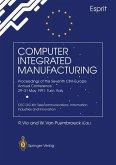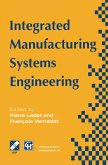Manufacturing has entered the early stages of a revolutionary period caused by the convergence of three powerful trends: - The rapid advancement and spread of manufacturing capabilities worldwide has created intense competition on a global scale. - The emergence of advanced manufacturing technologies is dramati cally changing both the products and processes of modern manufac turing. - Changes in traditional management and labor practices, organiza tional structures, and decision-making criteria represent new sources of competitiveness and introduce new strategic opportunities. These trends are interrelated and their effects are already being felt by the u.s. manufacturing community. Future competitiveness for manu facturers worldwide will depend on their response to these trends. Based on the recent performance of u.s. manufacturers, efforts to respond to the challenges posed by new competition, technology, and managerial opportunities have been slow and inadequate. Domestic markets that were once secure have been assailed by a growing number of foreign competitors producing high quality goods at low prices. In a number of areas, such as employment, capacity utilization, research and development expenditures, and capital investment, trends in u.s. manufacturing over the last decade have been unfavorable or have not kept pace with major foreign competitors, such as Japan. There is substantial evidence that many u.s. manufacturers have neglected the manufacturing function, have overemphasized product development at the expense of process improvements, and have not begun to make the adjustments that will be necessary to be competitive.
Hinweis: Dieser Artikel kann nur an eine deutsche Lieferadresse ausgeliefert werden.
Hinweis: Dieser Artikel kann nur an eine deutsche Lieferadresse ausgeliefert werden.









